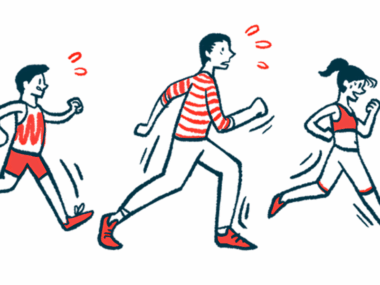‘Personal Zen’ Mobile App Helps to Ease Anxiety in Pediatric-onset MS
Written by |

Personal Zen, a digital anxiety management tool developed by Wise Therapeutics, eased anxiety and broad negative moods in people with pediatric-onset multiple sclerosis (MS), according to the results of a pilot study.
This app-based therapy, a “mobile gamified version” of what is known as attention bias modification treatment (ABMT), may also aid in managing feelings of distress related to other chronic neurological conditions.
The study, “Mobile Attention Bias Modification Training Is a Digital Health Solution for Managing Distress in Multiple Sclerosis: A Pilot Study in Pediatric Onset,” was published in the journal Frontiers in Neurology.
“Like many of our proof of concept trials, this study used our lead wellness product Personal Zen to demonstrate the potential clinical impact of our ABMT products,” Tracy Dennis-Tiwary, PhD, co-founder and chief science officer at Wise, said in a press release.
“Leveraging data from these studies, as well as real world deployments of Personal Zen, we are now developing new ABMT therapies with adaptive gameplay features that personalize the experience to the attentional habits of individual patients,” she added.
Anxiety and depression often affect people with MS and other chronic illnesses. Psychological stress is particular evident in younger MS patients, who have more frequent relapses than adults. These patients are also dealing with greater anxiety related to life experiences as adolescents and young adults.
ABMT is designed to reduce a person’s anxiety by shifting focus away from stress-inducing stimuli, and toward stimuli associated with positive feelings. As one progresses, they ideally gain more cognitive control over their stress triggers.
Researchers at Wise and other New York institutions conducted a pilot study to determine the feasibility and efficacy of ABMT — delivered via Wise’s Personal Zen mobile app — in people with pediatric-onset MS (POMS).
The study enrolled 35 patients recruited during routine visits at the pediatric MS center through the NYU Langone MS Comprehensive Care Center, in New York, between June 2020 and February 2021.
Participants, ages 14 to 23, were asked to use the app at least four times per week (100% feasibility criteria) for one month, with a minimum requirement of eight uses over the month needed to complete the study.
All met the minimum use requirement, and 26 (74%) met the 100% feasibility criteria.
Overall, use of Personal Zen associated with a self-reported reduction in anxiety of 38.3% among adult patients and of 20.1% of those under 18 years old, as measured by several questionnaires.
Adolescents completed the Child Depression Inventory 2 and the Multidimensional Anxiety Scale for Children Second Edition Parent Version. Adults completed the Beck Depression Inventory and the Beck Anxiety Inventory.
Negative affects, defined as feelings of emotional distress or a broad negative mood, also fell by 14.5% among these patients, as measured by the Positive and Negative Affect Schedule.
Users spoke favorably of the app during a debriefing interview at the study’s end.
“Using the app did calm me down while I was stressed or overwhelmed,” one participant said. “It gave me an opportunity to wind down.”
“I thought the app provided a peaceful distraction, at least temporarily, from what I was dealing with at any particular time,” said another.
These results, the study’s investigators write, support moving forward with clinical trials aimed at obtaining regulatory approval for ABMT.
“We found the ABMT app, Personal Zen, to be feasible to reach a sample of patients with POMS [pediatric-onset MS] with high fidelity to the intervention due to its convenience. In addition, we found a significant benefit of the intervention for reducing negative affect and anxiety symptoms among a sample [of patients] not specifically recruited due to baseline emotional health status,” the study concluded.
“Our intention is to market our next generation of products as Prescription Digital Therapeutics for targeted populations like MS, taking advantage of new regulatory and reimbursement pathways that have emerged to help meet the heightened need for accessible mental health treatments,” said Raj Amin, CEO of Wise.



